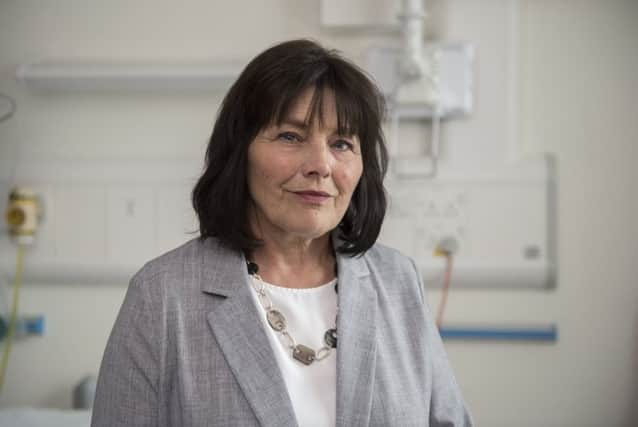Brian Wilson: SNP's '˜Quango Queen' is not alone on gravy train


Jeane Freeman, for it was she, has moved on to greater things as Health Minister in the Scottish Government. In the first half of this decade, she was a useful cog in the SNP machine as a former Labour apparatchik who, when the wind changed, discovered she was really a Nationalist.
Long a habituee of the quango circuit, Ms Freeman’s new appointments included the disastrous Scottish Police Authority. In her peak year of 2013-14, she pulled in £57,000 from that source alone. There were a couple of NHS roles, not forgetting the Judicial Appointments Board.
Advertisement
Hide AdAdvertisement
Hide AdAll this added up to 376 paid days in the financial year. One might have thought the Scottish Commissioner for Public Appointments (for such a person exists) might have done the arithmetic and asked questions but that is to over-estimate the vigilance of our non-barking watchdogs.
At the same time, Ms Freeman fronted “Women for Independence” and ran a lobbying firm which targeted the public sector. When a member of the public tabled a Freedom of Information request in 2015 about her business meetings with Scottish Ministers and officials, he was given the classic brush-off – the question would cost too much to answer.
Not unreasonably, he then wondered how lobbying activity could be monitored if ministers refused to provide information about their contacts on such implausible grounds. Another of our civic protectors, the Freedom of Information Commissioner, dismissed his complaint. Scotland really is a village.
In times past, big people were appointed to significant public roles. Sometimes there were cries of political patronage but in general, these individuals had the status to assert themselves and, where necessary, challenge government. The system was not perfect but it created necessary counterpoises to governments of the day. All that is gone.
In the 1990s, quango appointments were caught up in the remit of the Nolan Committee which John Major established to examine “Standards in Public Life” in the midst of the “Tory sleaze” misfortunes. Nolan got some things right but the appointments system which emerged was far worse than what it replaced.
It put enormous power in the hands of civil servants who could effectively block any applicant they did not fancy through vetting panels which offered ministers only the names of those they deemed “appointable”. And, of course, a political word in the ear of the civil servants could still influence that process.
However this has worked elsewhere in the UK, in “Scotland the Village” it had an entirely predictable effect. A “magic circle” of serial quangoteers emerged – chosen ones who had the blessing of civil servants on the grounds that they would never rock a boat. Once anointed, they would move seamlessly from one quango to the next.
I encountered all this in the early post-Nolan days in the Scottish Office. Getting anyone appointed who had not been deemed “appointable” was a major struggle. Yet the fact an individual had been vetoed might well be to their credit if it suggested an unwelcome degree of specific expertise or independence of mind.
Advertisement
Hide AdAdvertisement
Hide AdThere are still individuals floating around the Scottish quango circuit who were being put up for every chairmanship that occurred 20 years ago. The qualifications are that they challenge nothing, remain anonymous and nod their heads when directed by ministers. Political influence is as prevalent as it ever was – just much less transparent. Ask Ms Freeman.
This all fits into the wider pattern of centralisation which has systematically downgraded every other centre of influence withim Scotland – public bodies, local government, police boards, funding-dependent third sector organisations – in order to create a closely integrated structure which brooks no challenge.
There is a powerful political agenda waiting to be created around the need to restore diversity and scrutiny within Scotland in order to challenge the power of the centre. Some might see that requirement as a paradoxical outcome of devolution while others recognise it as depressing – but largely predictable.
